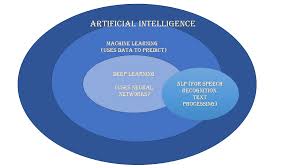The Role of Technology Services in Driving Business Success
Technology services play a crucial role in today’s business landscape, enabling companies to innovate, streamline operations, and stay competitive in a rapidly evolving market. From cloud computing and cybersecurity to data analytics and artificial intelligence, technology services encompass a wide range of solutions that empower businesses to achieve their goals.
Enhancing Efficiency and Productivity
One of the key benefits of technology services is their ability to enhance efficiency and productivity within an organisation. By implementing software solutions tailored to specific business needs, companies can automate repetitive tasks, streamline processes, and improve overall workflow. This not only saves time and resources but also allows employees to focus on more strategic initiatives that drive growth.
Improving Customer Experience
Technology services also play a vital role in improving customer experience. From mobile apps and e-commerce platforms to customer relationship management (CRM) systems, businesses can leverage technology to better understand their customers’ needs and preferences. This enables them to deliver personalised experiences, build stronger relationships, and ultimately drive customer loyalty.
Ensuring Data Security
In an era where data breaches are becoming increasingly common, cybersecurity is a top priority for businesses of all sizes. Technology services such as network security, encryption tools, and threat detection systems help safeguard sensitive information from cyber threats. By investing in robust cybersecurity measures, companies can protect their data assets and build trust with customers.
Driving Innovation
Technology services are at the forefront of driving innovation within organisations. Whether through the adoption of emerging technologies like artificial intelligence or the development of custom software solutions, businesses can differentiate themselves from competitors and seize new opportunities for growth. By embracing innovation, companies can stay ahead of the curve and future-proof their operations.
Conclusion
In conclusion, technology services are essential for businesses looking to thrive in today’s digital age. By leveraging the right technology solutions, companies can enhance efficiency, improve customer experience, ensure data security, and drive innovation. As technology continues to evolve at a rapid pace, investing in quality technology services is key to achieving sustainable business success.
Eight Ways Technology Services Transform Business Efficiency and Growth
- Enhance efficiency and productivity
- Improve customer experience
- Ensure data security
- Drive innovation within the organisation
- Enable remote collaboration and flexibility
- Provide access to advanced analytics and insights
- Facilitate scalability and growth of the business
- Support sustainability efforts through digital transformation
Challenges of Technology Services: Costs, Disruptions, and Security Concerns
- High initial investment costs for implementing technology services
- Potential disruption to existing workflows during technology integration
- Dependency on external vendors for maintenance and support of technology solutions
- Security vulnerabilities that may expose sensitive data to cyber threats
- Risk of technological obsolescence, requiring frequent updates and upgrades
- Difficulty in finding skilled professionals to manage and optimise complex technology services
Enhance efficiency and productivity
One of the key advantages of technology services is their ability to enhance efficiency and productivity within organisations. By implementing tailored software solutions and automation tools, businesses can streamline processes, eliminate manual tasks, and boost overall workflow efficiency. This not only saves time and resources but also empowers employees to focus on strategic initiatives that drive growth and innovation. The seamless integration of technology services into daily operations optimises performance, allowing businesses to operate more effectively and achieve greater productivity levels.
Improve customer experience
Improving customer experience is a significant advantage of technology services in today’s business landscape. By leveraging advanced tools and platforms, companies can gain valuable insights into customer preferences, behaviour, and feedback. This enables businesses to deliver personalised interactions, streamline communication channels, and enhance overall satisfaction. Through the use of technology services such as CRM systems, mobile apps, and data analytics, organisations can build stronger relationships with customers, anticipate their needs, and create memorable experiences that drive loyalty and retention.
Ensure data security
Ensuring data security is a critical benefit of technology services in today’s digital landscape. With the increasing threat of cyber attacks and data breaches, businesses must prioritise safeguarding sensitive information. Technology services such as encryption tools, network security protocols, and threat detection systems play a crucial role in protecting valuable data assets from malicious actors. By implementing robust data security measures, organisations can build trust with customers, comply with regulatory requirements, and mitigate the risks associated with cyber threats, ultimately safeguarding their reputation and maintaining business continuity.
Drive innovation within the organisation
One significant advantage of technology services is their ability to drive innovation within an organisation. By embracing emerging technologies and custom software solutions, businesses can foster a culture of creativity and forward thinking. Technology services enable companies to explore new ideas, develop cutting-edge products and services, and stay ahead of the competition. Through innovation, organisations can adapt to changing market demands, identify opportunities for growth, and position themselves as industry leaders in a rapidly evolving digital landscape.
Enable remote collaboration and flexibility
Technology services offer the invaluable benefit of enabling remote collaboration and flexibility in the modern workplace. Through tools such as video conferencing, cloud storage, project management software, and communication platforms, employees can seamlessly collaborate with colleagues from anywhere in the world. This flexibility not only enhances productivity but also allows businesses to tap into a global talent pool, promote work-life balance, and adapt to changing work environments with ease. Embracing technology services for remote collaboration empowers organisations to stay connected and efficient in an increasingly digital and interconnected world.
Provide access to advanced analytics and insights
Technology services offer businesses access to advanced analytics and insights, enabling them to make data-driven decisions with precision and clarity. By harnessing powerful tools and technologies, companies can unlock valuable information hidden within their data, gaining a deeper understanding of their operations, customers, and market trends. This proactive approach empowers businesses to identify opportunities for growth, optimise strategies, and stay ahead of the competition in today’s fast-paced digital landscape.
Facilitate scalability and growth of the business
Technology services play a pivotal role in facilitating the scalability and growth of businesses. By leveraging scalable software solutions, companies can easily expand their operations, accommodate increased demand, and adapt to changing market dynamics. Whether through cloud computing for flexible infrastructure or enterprise resource planning (ERP) systems for streamlined processes, technology services provide the foundation for sustainable growth. This enables businesses to seize new opportunities, enter new markets, and effectively scale their operations without being hindered by technological limitations.
Support sustainability efforts through digital transformation
Technology services play a crucial role in supporting sustainability efforts through digital transformation. By leveraging innovative solutions such as cloud computing, data analytics, and IoT devices, businesses can streamline processes, reduce waste, and lower their carbon footprint. Digital transformation enables companies to operate more efficiently, optimise resource usage, and make informed decisions that contribute to a greener future. Through technology services, organisations can embrace sustainable practices and drive positive environmental impact while achieving their business objectives.
High initial investment costs for implementing technology services
One significant drawback of technology services is the high initial investment costs required for implementing such solutions. Businesses often face substantial expenses when adopting new technologies, including software development, hardware upgrades, training programmes, and ongoing maintenance. These upfront costs can pose a financial challenge for many organisations, especially smaller businesses with limited budgets. The need to allocate significant resources towards technology implementation can delay the expected return on investment and may deter some companies from fully embracing the potential benefits that technology services offer.
Potential disruption to existing workflows during technology integration
The potential disruption to existing workflows during technology integration poses a significant challenge for businesses adopting new technology services. Implementing new software or systems can lead to temporary inefficiencies as employees adjust to unfamiliar processes, causing disruptions in day-to-day operations. This transitional period may result in productivity dips and require additional training and support to ensure a smooth transition. Managing this disruption effectively is crucial to minimising the impact on business continuity and ensuring that the long-term benefits of the technology integration outweigh the short-term challenges.
Dependency on external vendors for maintenance and support of technology solutions
One significant drawback of technology services is the dependency on external vendors for maintenance and support of technology solutions. Relying on third-party providers for ongoing assistance can lead to challenges such as delayed response times, communication issues, and potential disruptions in service. Businesses may find themselves at the mercy of external vendors’ availability and expertise, which can impact their operations and hinder timely resolution of technical issues. This dependency introduces a level of uncertainty and reliance on external entities that may not always align with the business’s needs or priorities, highlighting a vulnerability in the seamless functioning of technology solutions.
Security vulnerabilities that may expose sensitive data to cyber threats
One significant drawback of technology services is the presence of security vulnerabilities that can potentially expose sensitive data to cyber threats. Despite advancements in cybersecurity measures, the ever-evolving nature of cyber threats means that no system is entirely immune to breaches. From malware attacks to phishing schemes, businesses face the constant risk of data breaches that can have severe consequences, including financial loss, damage to reputation, and legal implications. Ensuring robust security protocols and regularly updating systems are essential steps in mitigating these risks and safeguarding sensitive information from falling into the wrong hands.
Risk of technological obsolescence, requiring frequent updates and upgrades
One significant drawback of technology services is the risk of technological obsolescence, which often necessitates frequent updates and upgrades. As technology rapidly advances, systems and software can quickly become outdated, leading to compatibility issues, security vulnerabilities, and decreased performance. This constant need for updates not only requires additional time and resources but also poses a challenge for businesses to stay current with the latest technologies. Failure to address technological obsolescence can result in inefficiencies, increased costs, and potential disruptions to operations, highlighting the ongoing struggle to keep pace with the ever-changing tech landscape.
Difficulty in finding skilled professionals to manage and optimise complex technology services
One significant challenge associated with technology services is the difficulty in finding skilled professionals capable of effectively managing and optimising complex technological solutions. As businesses increasingly rely on advanced technologies such as artificial intelligence, data analytics, and cloud computing, the demand for specialised IT professionals continues to grow. However, recruiting and retaining talent with the necessary expertise and experience to navigate these intricate systems poses a considerable hurdle for many organisations. The shortage of skilled professionals in the technology sector can hinder the successful implementation and maintenance of sophisticated technology services, potentially impacting business operations and innovation capabilities.






